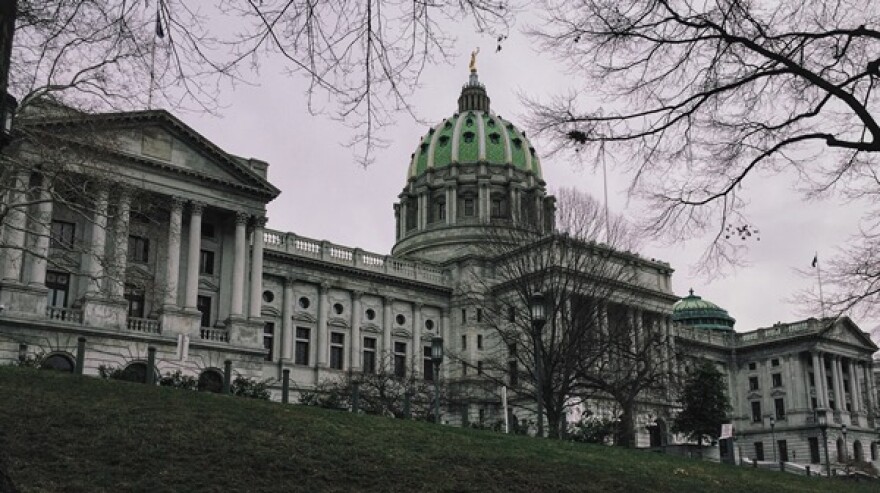HARRISBURG, PA (WSKG) - Every year after Pennsylvania's governor makes his budget pitch to the House and Senate, lawmakers hold weeks of budget hearings with state departments and agencies to get a sense of the way money is being spent, and what should change.
They kicked off this week with the Independent Fiscal Office, which is tasked with issuing reports on state finances.
Over the two hours IFO officers sat before the House Appropriations Committee Monday, one subject kept coming up: the minimum wage.
Governor Tom Wolf wants to raise the wage from $7.25 an hour to $12.00, and then gradually up to $15.00.
Fellow Democrats, like House Appropriations Minority Chair Matt Bradford, largely agree.
He called the $7.25-an-hour federal minimum "simply unacceptable," and a "poverty wage" that is "not commensurate with the dignity that work should come with."
The majority chair thought the opposite.
"Minimum wage jobs are jobs that you're only supposed to stay in temporarily, and move on," Republican Stan Saylor said.
He added, "Minimum wage is not a real job to sustain a family...it is not a place we expect American citizens or Pennsylvania citizens to be sitting at for the rest of their life. And if you are, you're not being aggressive enough at getting the job training dollars we have out there and moving forward."
The IFO has estimated that a gradual increase to a $12.00-an-hour minimum wage would eventually do away with about 30,000 jobs statewide. Director Matthew Knittel said that number would likely be higher if the wage was raised all at once, as Wolf wants to do.
The IFO has also estimated the increase would net the state about $40 million new tax dollars from increased purchasing, and possibly around $90 million more in human services savings.
But despite that potential impact, Knittel said the minimum wage isn't his biggest concern when it comes to Pennsylvania's fiscal position.
He told the House Appropriations Committee that even with a strong economy, the state budget is still shaky. And he's anticipating the economy will enter a downturn within the next year or two.
"My office believes we even have a deficit this year," Knittel said. "So, if there is a recession next year, I don't think we're well-positioned to address it."
He said the deficit might come from a $200 million appropriation the state wants to make from a medical malpractice insurer, but which is blocked in federal court.
The state's Rainy-Day Fund currently holds about $23 million. Knittel says it would take about $500 million for him to be confident about weathering a minor downturn.
Saylor said he isn't expecting any imminent economic weakness. But he said he does want to put more in the Rainy-Day Fund.

